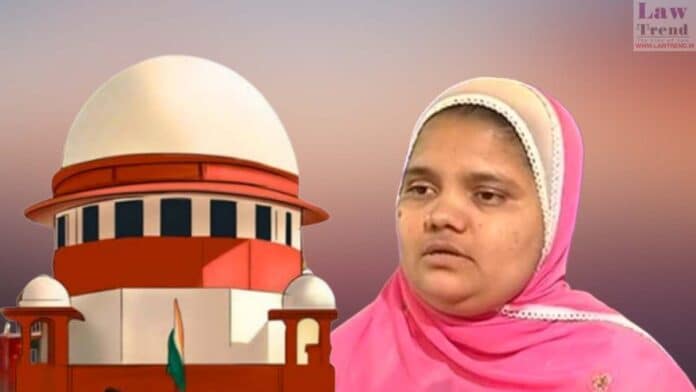Two of the convicts in the Bilkis Bano case have moved a plea before the Supreme Court questioning the judicial proprietary of the judgment which set aside the remission orders passed by the Gujarat government.
The writ petition filed by convicts Radheshyam Bhagwandas Shah and Rajubhai Babulal Soni said that an anomalous situation has arisen wherein two different co-ordinate benches have taken diametrically opposite views on the very same issue of premature release, as well as which policy of the state government would be applicable.
A bench of Justices B.V. Nagarathna and Ujjal Bhuyan had on January 8 held that the state of Maharashtra had the jurisdiction to consider the early release application filed by the convicts as they were sentenced by a special court in Mumbai, and the Gujarat government is not the appropriate government within the meaning of Section 432(7) of the Code of Criminal Procedure (CrPC).
It may be recalled that a bench of Justices Ajay Rastogi and Vikram Nath had in May 2022 asked the Gujarat government to consider the remission application filed by a convict.
However, the Justice Nagarathna-led bench held that the May 2022 order was obtained by suppressing material aspects.
It said: “We hold that consequently the order dated 13.05.2022 passed by this court is hit by fraud and is a nullity and non est in the eye of law and therefore cannot be given effect to and hence, all proceedings pursuant to the said order are vitiated.”
The latest plea filed by the convicts said: “A fundamental issue arises for consideration as to whether a subsequent co-ordinate bench can set aside its earlier judgment rendered by its earlier co-ordinate bench and pass contradictory orders/judgments overruling its earlier view or the proper course would have been to refer the matter to a larger bench in case it felt that the earlier judgment was passed in wrong appreciation of law and facts.”
It contended that once a particular view was taken in May 2022, the remedy for the victim was to file a review petition and after the review petition was dismissed, the only remedy was to file a curative petition, but certainly not to file a writ petition under Article 32 of the Constitution challenging the judgment passed by the top court.
Further, the convicts’ petition said that the appropriate government for the exercise of power of remission would alone be the Union of India as the instant case was investigated by the CBI.
It added that the matter must be referred to a larger bench for final adjudication and proper determination on law and merits of the case. (IANS)




